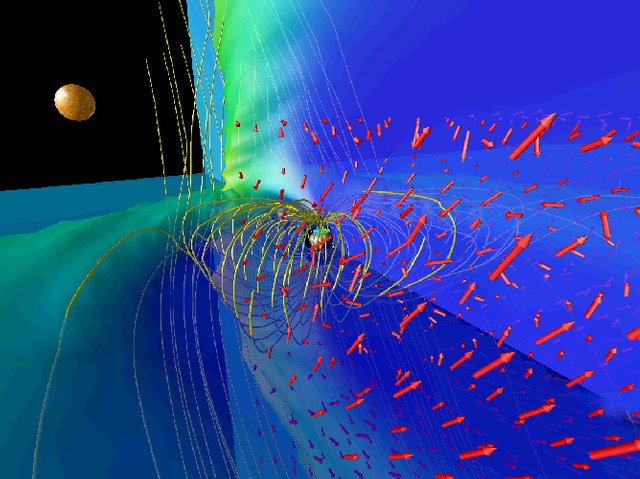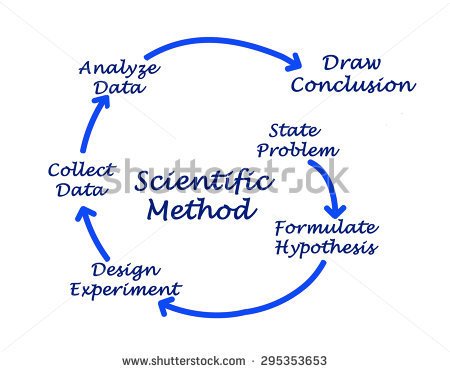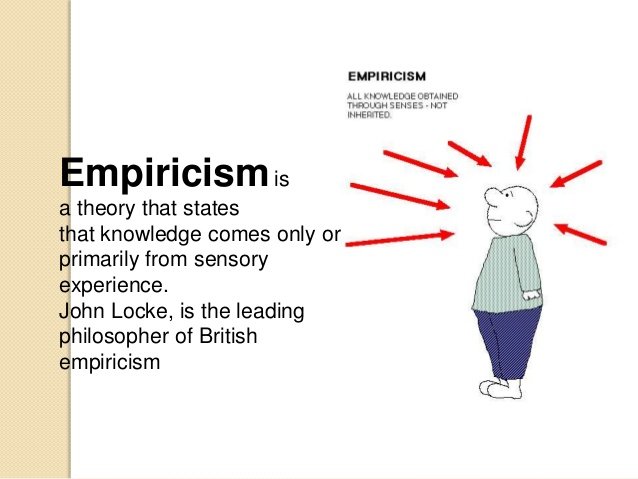The onset of Scientific Thought

Image Source
It might be ideal to review history and perceive how science has advanced after some time and distinguish the key scientific personalities in this development. Despite the fact that examples of scientific advances have been archived over numerous centuries, the terms science, scientists, and the scientific method were begat just in the 19th century. Preceding this, science was seen as a piece of philosophy, and existed together with different branches of philosophy.
Knowledge was normally perceived as far as theological statutes in light of faith. This was tested by Greek philosophers, for example, Plato, Aristotle, and Socrates amid the 3rd century BC, who recommended that the principal nature of being and the world can be seen all the more precisely through a procedure of rationalism.
Specifically, Aristotle's great work Metaphysics isolated theology from ontology and universal science. Rationalism sees reason as the wellspring of knowledge or support, and recommends that the measure of truth isn't tactile but instead intellectual and deductive, frequently got from an arrangement of first standards.
The following real move in scientific thought happened amid the 16th century, when British philosopher Francis Bacon proposed that knowledge must be gotten from observations in reality. In view of this preface, Bacon stressed knowledge securing as an exact movement, and created empiricism as a compelling branch of philosophy.

Image Source
Bacon's works prompted the advancement of inductive methods of scientific request, the improvement of the scientific method, comprising of efficient perception, estimation, and experimentation, and may have even sowed the seeds of atheism or the dismissal of theological statutes as imperceptible.
Empiricism kept on conflicting with rationalism all through the Middle Ages, as philosophers looked for the best method for increasing legitimate knowledge. French philosopher Rene Descartes favored the rationalists, while British philosophers John Locke and David Hume agreed with the empiricists.
Scientists like Galileo Galilei and Sir Issac Newton, endeavored to combine the two thoughts into natural philosophy, to center particularly around understanding nature and the physical universe, which is thought to be the forerunner of the natural sciences. Galileo was maybe the first to express that the laws of nature are scientific, and added to the field of space science through an inventive blend of experimentation and arithmetic.

Image Source
In the 18th century, German philosopher Immanuel Kant looked to determine the debate amongst empiricism and rationalism in his book Critique of Pure Reason, by belligerence that experience is purely subjective and handling them utilizing pure reason without first digging into the subjective nature of experiences will prompt hypothetical fantasies. Kant's thoughts prompted the improvement of German idealism, which propelled later advancement of interpretive methods.
At about a similar time, French philosopher Auguste Comte, organizer of the discipline of sociology, endeavored to mix rationalism and empiricism in another precept called positivism. He recommended that theory and observations have round reliance on each other.
While theories might be made by means of reasoning, they are just true in the event that they can be confirmed through observations. The accentuation on confirmation began the detachment of modern science from philosophy and metaphysics and further improvement of the scientific method as the essential methods for approving scientific cases. Comte's thoughts were extended by Emile Durkheim in his advancement of sociological positivism and Ludwig Wittgenstein in logical positivism.

Image Source
References:
History of science and scientific disciplines
The Scientific Method/History of Scientific Thought
A Brief History of Scientific Thoughts
Without Francis Bacon's work, I think the web would have had a major setback in scientific reasoning. Especially his application of inductive reasoning to acquire logical and testable conclusion. I think a cheer is well deserved for the proponents of progress and for the author of this post. Nice one.
Downvoting a post can decrease pending rewards and make it less visible. Common reasons:
Submit
The time and space, according to Kant, are pure intuitions of our sensibility, and concepts of physics such as causality or inertia are pure intuitions of our faculty of understanding. Critique of Pure Reason is a great book!
Downvoting a post can decrease pending rewards and make it less visible. Common reasons:
Submit
Empiricism is the basis of current scientific methods. It begun when we start to think rationally, at the time we "invented the fire"..
Downvoting a post can decrease pending rewards and make it less visible. Common reasons:
Submit
The Tree of Life, or Etz haChayim (עץ החיים) has upvoted you with divine emanations of G-ds creation itself ex nihilo. We reveal Light by transforming our Desire to Receive for Ourselves to a Desire to Receive for Others. I am part of the Curators Guild (Sephiroth), through which Ein Sof (The Infinite) reveals Itself!
Downvoting a post can decrease pending rewards and make it less visible. Common reasons:
Submit
Excellent post...Thanks for sharing with you dear steemit friend
Downvoting a post can decrease pending rewards and make it less visible. Common reasons:
Submit
Congratulations @juvyjabian! You have completed some achievement on Steemit and have been rewarded with new badge(s) :
Click on any badge to view your own Board of Honor on SteemitBoard.
To support your work, I also upvoted your post!
For more information about SteemitBoard, click here
If you no longer want to receive notifications, reply to this comment with the word
STOPDownvoting a post can decrease pending rewards and make it less visible. Common reasons:
Submit
You got a 1.88% upvote from @postpromoter courtesy of @juvyjabian!
Want to promote your posts too? Check out the Steem Bot Tracker website for more info. If you would like to support the development of @postpromoter and the bot tracker please vote for @yabapmatt for witness!
Downvoting a post can decrease pending rewards and make it less visible. Common reasons:
Submit